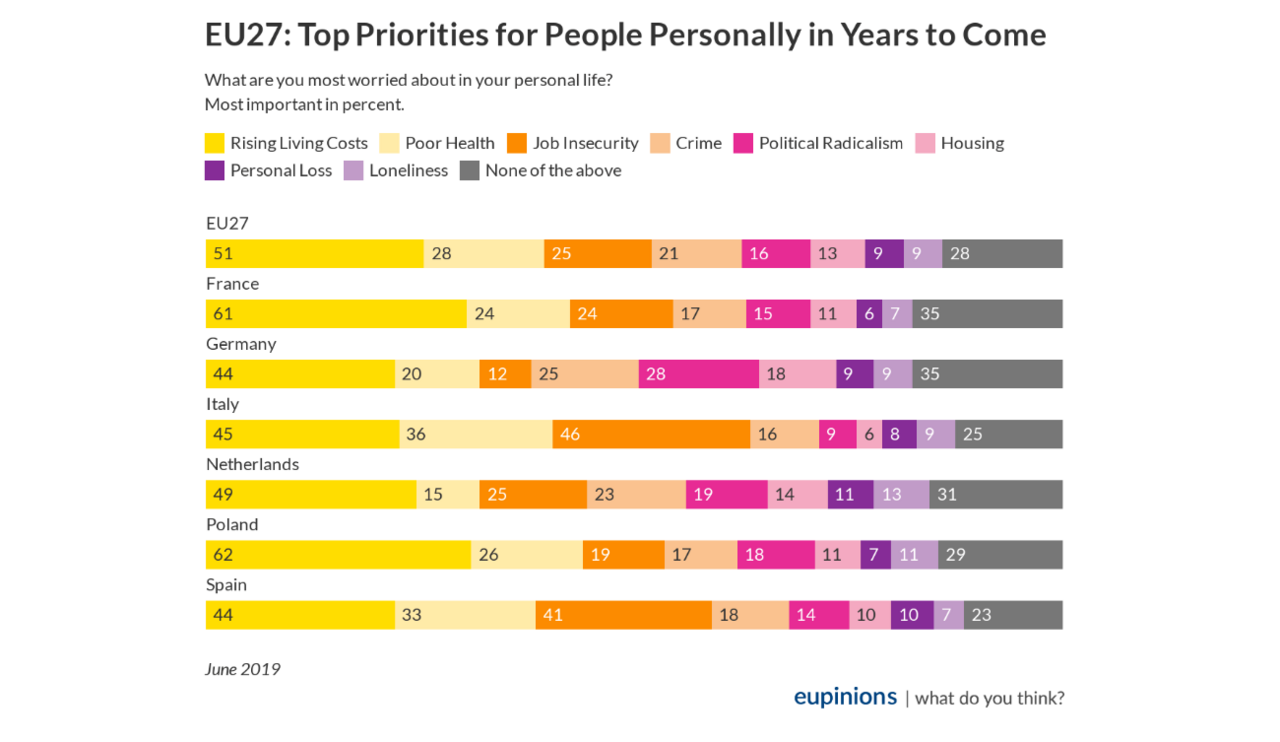Every week, surveys from all across the EU tell us what Europeans are thinking, feeling and talking about. In our segment, eupinions echo, we collect these voices and play them back to you. Each week, we highlight one survey of particular interest in a short blogpost and share daily new survey results via our website and our twitter channel.
Amidst a global pandemic on a scale probably not witnessed since the deadly Spanish flu of 1918, it would be natural to assume that the COVID-19 virus and its various consequences dominated peoples' fears and worries. At least for Germans, however, this does not appear to be the case. Instead, a much more human spectre turns out to occupy the German mindset and causes worries; the current president of the United States of America. This is the result of this year’s "Die Ängste der Deutschen" (The fears of the Germans), a study published annually ever since 1992 by R+V.
The study asks respondents to rank 22 risks and threats from the one they are most afraid of, to the one they are least afraid of. The biggest fear of the German people, it turns out, is "a more dangerous world caused by the policies of US President Trump" with 53% of respondents stating that they are very afraid of this prospect. Meanwhile, the fear of a serious illness or infection with the corona virus only ranked 17th on Germans' greatest fears with only about a third (32%) of respondents being very afraid of this.
While this might come as a surprising result in 2020 (interviews were conducted in June and July when Germans were already well aware of the impact of COVID), reality actually turns out to be a bit more nuanced. If one looks at the other fears that worry Germans the most this year, the list is predominantly filled with economic worries. The second most prominent fear among respondents was the prospect of rising costs of living (51%), followed by a higher tax burden caused by a European debt crisis (49%) and a general decline of the economy (48%). In addition, 40% of Germans also fear rising numbers of unemployment, making this the fear that has seen the biggest increase (+12%) since last year. Our very own eupinions data suggests that rising costs of living appear to be a constant and dominant worry across Europe more generally. In our 2019 study “Great Expectations”, we have shown that, at 51%, rising costs of living was the number one personal worry, both for Europeans as a whole and for people in France, Italy, the Netherlands, Poland and Spain and Germany individually.



